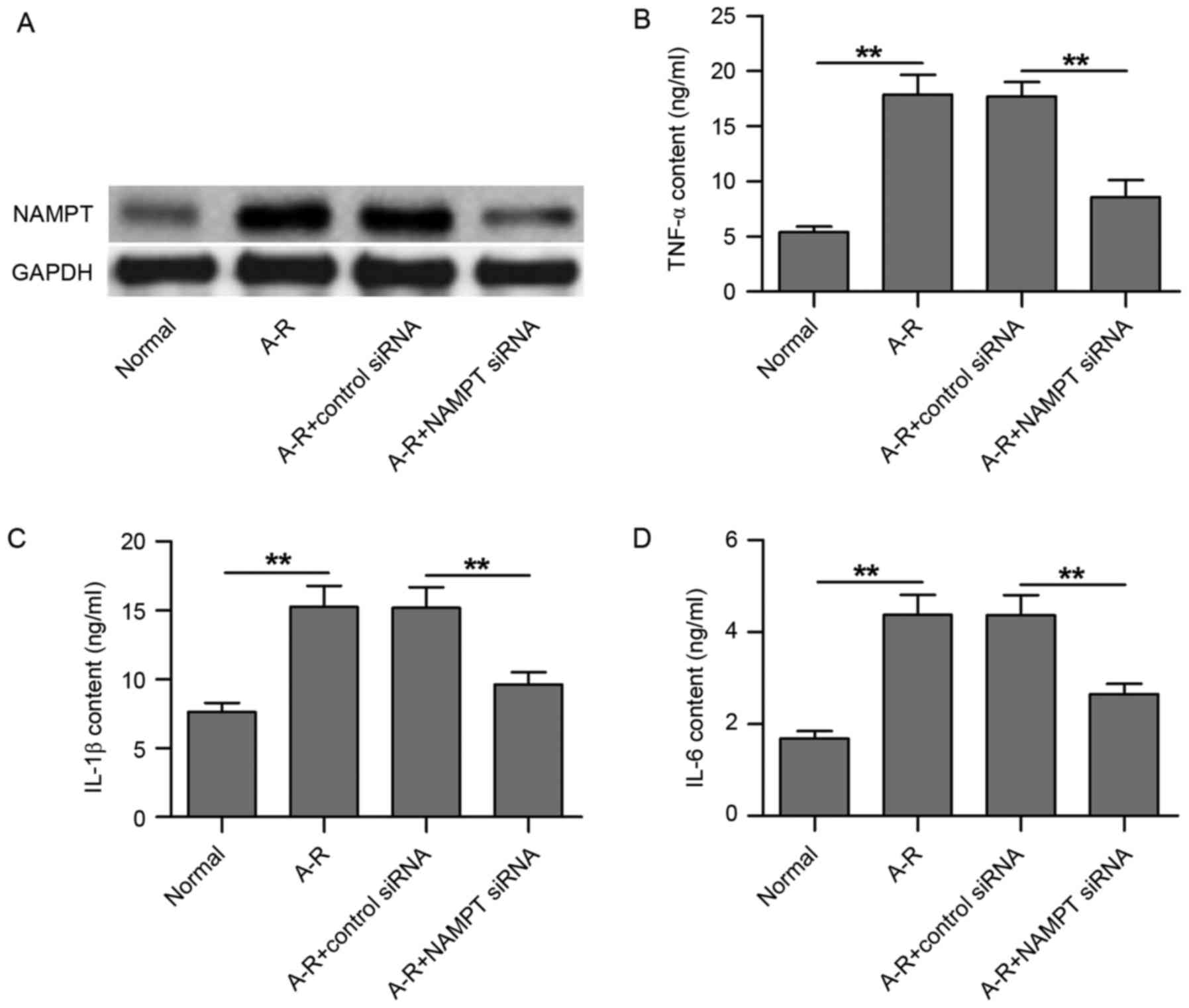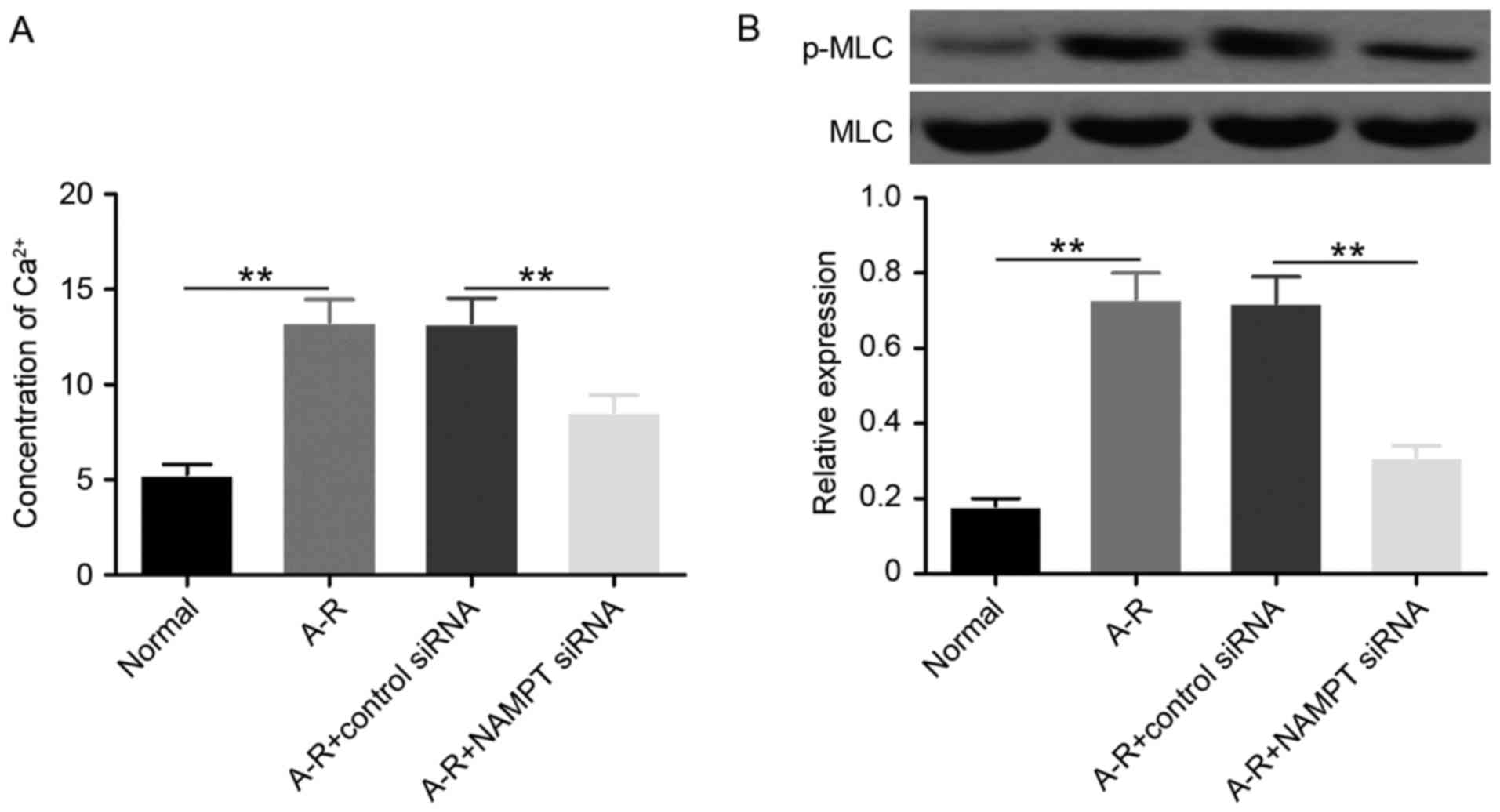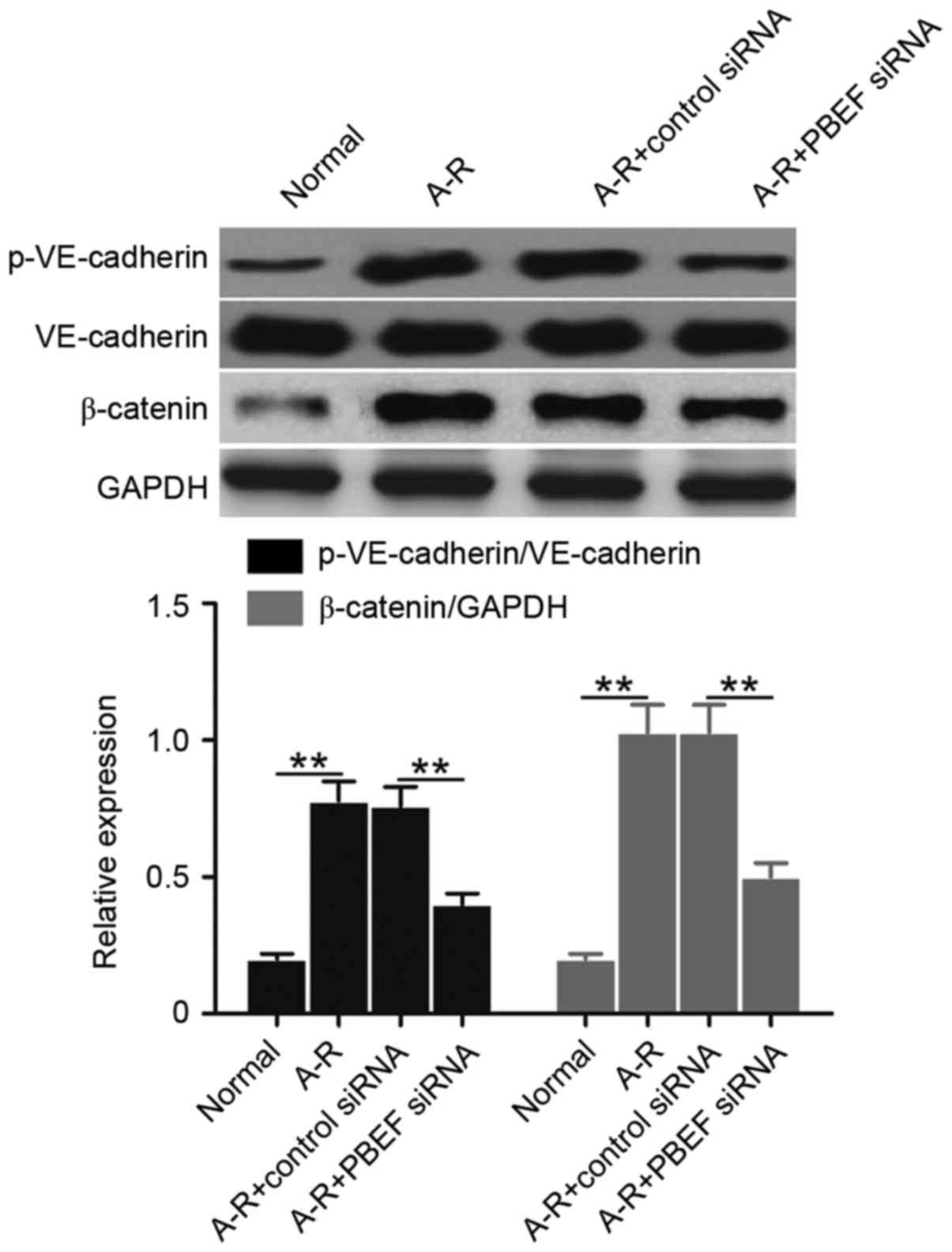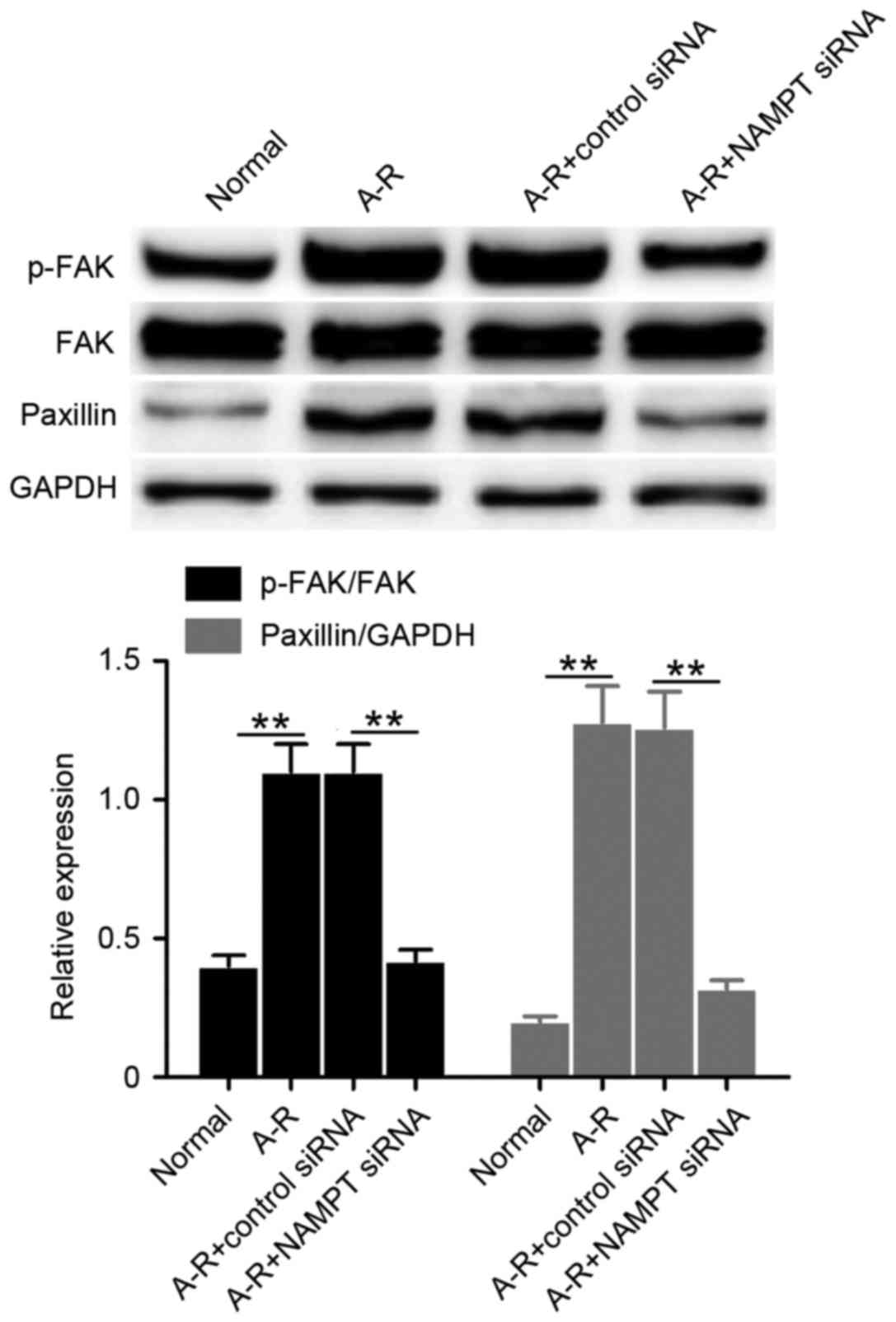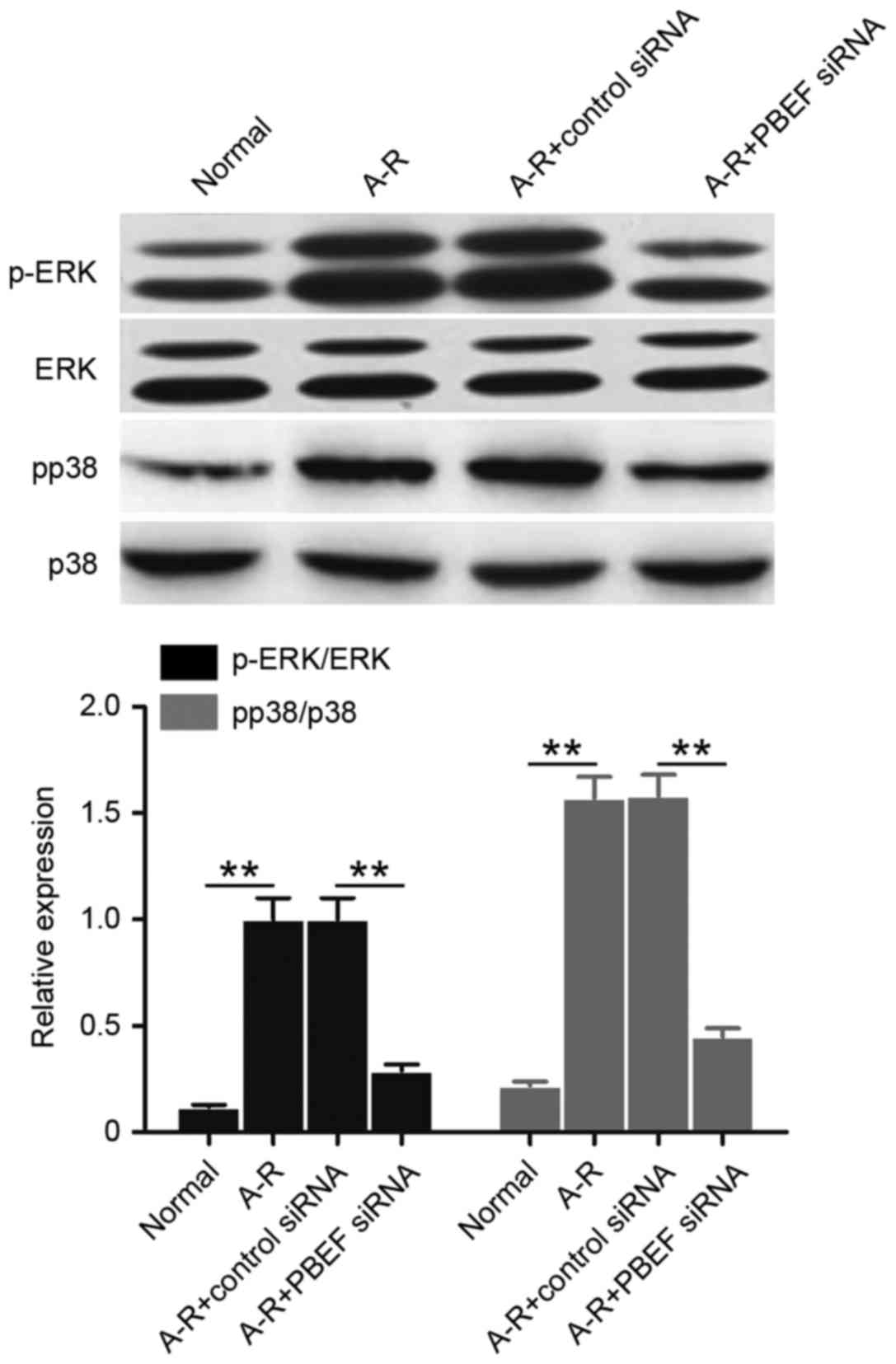|
1
|
Huffmyer JL and Groves DS: Pulmonary
complications of cardiopulmonary bypass. Best Pract Res Clin
Anaesthesiol. 29:163–175. 2015. View Article : Google Scholar : PubMed/NCBI
|
|
2
|
Thiessen S, Vanhorebeek I and Van den
Berghe G: Glycemic control and outcome related to cardiopulmonary
bypass. Best Pract Res Clin Anaesthesiol. 29:177–187. 2015.
View Article : Google Scholar : PubMed/NCBI
|
|
3
|
Durandy Y: Minimizing systemic
inflammation during cardiopulmonary bypass in the pediatric
population. Artif Organs. 38:11–18. 2014. View Article : Google Scholar : PubMed/NCBI
|
|
4
|
Ferrari RS and Andrade CF: Oxidative
stress and lung ischemia-reperfusion injury. Oxid Med Cell Longe.
2015:5909872015. View Article : Google Scholar
|
|
5
|
Chao YK, Wu YC, Yang KJ, Chiang LL, Liu
HP, Lin PJ and Chu Y: Pulmonary perfusion with L-arginine
ameliorates post-cardiopulmonary bypass lung injury in a rabbit
model. J Surg Res. 167:e77–e83. 2011. View Article : Google Scholar : PubMed/NCBI
|
|
6
|
Samal B, Sun YH, Stearns G, Xie CS, Suggs
S and McNiece I: Cloning and characterization of the cDNA encoding
a novel human pre-B-cell colony-enhancing factor. Mol Cell Biol.
14:1431–1437. 1994. View Article : Google Scholar : PubMed/NCBI
|
|
7
|
Chang YC, Chang TJ, Lee WJ and Chuang LM:
The relationship of visfatin/pre-B-cell colony-enhancing
factor/nicotinamide phosphoribosyltransferase in adipose tissue
with inflammation, insulin resistance, and plasma lipids.
Metabolism. 59:93–99. 2010. View Article : Google Scholar : PubMed/NCBI
|
|
8
|
Bajwa EK, Yu CL, Gong MN, Thompson BT and
Christiani DC: Pre-B-cell colony-enhancing factor gene
polymorphisms and risk of acute respiratory distress syndrome. Crit
Care Med. 35:1290–1295. 2007. View Article : Google Scholar : PubMed/NCBI
|
|
9
|
Yang W, Zeng Y, Li B, Zhou J, Gong Y, Xu J
and Dong X: Pre-B-cell colony enhancing factor (PBEF) increases
endothelial permeability in hypoxia/re-oxygenation model. Int J
Clin Exp Med. 8:8842–8847. 2015.PubMed/NCBI
|
|
10
|
Mordret G: MAP kinase kinase: A node
connecting multiple pathways. Biol Cell. 79:193–207. 1993.
View Article : Google Scholar : PubMed/NCBI
|
|
11
|
L'Allemain G: Deciphering the MAP kinase
pathway. Prog Growth Factor Res. 5:291–334. 1994. View Article : Google Scholar : PubMed/NCBI
|
|
12
|
Munshi A and Ramesh R: Mitogen-activated
protein kinases and their role in radiation response. Genes Cancer.
4:401–408. 2013. View Article : Google Scholar : PubMed/NCBI
|
|
13
|
Markou T and Chambers DJ: Lung injury
after simulated cardiopulmonary bypass in an isolated perfused rat
lung preparation: Role of mitogen-activated protein kinase/Akt
signaling and the effects of theophylline. J Thorac Cardiovasc
Surg. 148:2335–2344. 2014. View Article : Google Scholar : PubMed/NCBI
|
|
14
|
Dong X, Liu Y, Du M, Wang Q, Yu CT and Fan
X: P38 mitogen-activated protein kinase inhibition attenuates
pulmonary inflammatory response in a rat cardiopulmonary bypass
model. Eur J Cardiothorac Surg. 30:77–84. 2006. View Article : Google Scholar : PubMed/NCBI
|
|
15
|
Lum H and Malik AB: Regulation of vascular
endothelial barrier function. Am J Physiol. 267:L223–L241.
1994.PubMed/NCBI
|
|
16
|
Mehta D and Malik AB: Signaling mechanisms
regulating endothelial permeability. Physiol Rev. 86:279–367. 2006.
View Article : Google Scholar : PubMed/NCBI
|
|
17
|
Van Lierop JE, Wilson DP, Davis JP,
Tikunova S, Sutherland C, Walsh MP and Johnson JD: Activation of
smooth muscle myosin light chain kinase by calmodulin. Role of
LYS(30) and GLY(40). J Biol Chem. 277:6550–6558. 2002. View Article : Google Scholar : PubMed/NCBI
|
|
18
|
Sun ZJ, Lei H and Zhang Z: Pre-B cell
colony enhancing factor (PBEF), a cytokine with multiple
physiological functions. Cytokine Growth Factor Rev. 24:433–442.
2013. View Article : Google Scholar : PubMed/NCBI
|
|
19
|
Dahl TB, Yndestad A, Skjelland M, Øie E,
Dahl A, Michelsen A, Damås JK, Tunheim SH, Ueland T, Smith C, et
al: Increased expression of visfatin in macrophages of human
unstable carotid and coronary atherosclerosis: Possible role in
inflammation and plaque destabilization. Circulation. 115:972–980.
2007. View Article : Google Scholar : PubMed/NCBI
|
|
20
|
Zakkar M, Guida G, Suleiman M and Angelini
GD: Cardiopul-monary bypass and oxidative stress. Oxid Med Cell
Longe. 2015:1898632015. View Article : Google Scholar
|
|
21
|
Ye SQ, Simon BA, Maloney JP,
Zambelli-Weiner A, Gao L, Grant A, Easley RB, McVerry BJ, Tuder RM,
Standiford T, et al: Pre-B-cell colony-enhancing factor as a
potential novel biomarker in acute lung injury. Am J Respir Crit
Care Med. 171:361–370. 2005. View Article : Google Scholar : PubMed/NCBI
|
|
22
|
Hong SB, Huang Y, Moreno-Vinasco L,
Sammani S, Moitra J, Barnard JW, Ma SF, Mirzapoiazova T, Evenoski
C, Reeves RR, et al: Essential role of pre-B-cell colony enhancing
factor in ventilator-induced lung injury. Am J Respir Crit Care
Med. 178:605–617. 2008. View Article : Google Scholar : PubMed/NCBI
|
|
23
|
Liu P, Li H, Cepeda J, Zhang LQ, Cui X,
Garcia JG and Ye SQ: Critical role of PBEF expression in pulmonary
cell inflammation and permeability. Cell Biol Int. 33:19–30. 2009.
View Article : Google Scholar : PubMed/NCBI
|
|
24
|
Liu C, Zhang H, Cheng PY and Zhou FC: The
influence of pre-B-cell colony enhancing factor on adhesive
molecule in pulmonary cells in rats with acute lung injury/acute
respiratory distress syndrome. Zhonghua Wei Zhong Bing Ji Jiu Yi
Xue. 25:159–163. 2013.(In Chinese). PubMed/NCBI
|
|
25
|
Gao W, Mao Q, Feng AW, Sun HM, Sun WK, Lu
X, Su X and Shi Y: Inhibition of pre-B cell colony-enhancing factor
attenuates inflammation and apoptosis induced by pandemic H1N1 2009
in lung endothelium. Respir Physiol Neurobiol. 178:235–241. 2011.
View Article : Google Scholar : PubMed/NCBI
|
|
26
|
Ye SQ, Zhang LQ, Adyshev D, Usatyuk PV,
Garcia AN, Lavoie TL, Verin AD, Natarajan V and Garcia JG:
Pre-B-cell-colony-enhancing factor is critically involved in
thrombin-induced lung endothelial cell barrier dysregulation.
Microvasc Res. 70:142–151. 2005. View Article : Google Scholar : PubMed/NCBI
|
|
27
|
Liu SW, Qiao SB, Yuan JS and Liu DQ:
Visfatin stimulates production of monocyte chemotactic protein-1
and interleukin-6 in human vein umbilical endothelial cells. Horm
Metab Res. 41:281–286. 2009. View Article : Google Scholar : PubMed/NCBI
|
|
28
|
Khan TA, Bianchi C, Araujo EG, Ruel M,
Voisine P and Sellke FW: Activation of pulmonary mitogen-activated
protein kinases during cardiopulmonary bypass. J Surg Res.
115:56–62. 2003. View Article : Google Scholar : PubMed/NCBI
|
|
29
|
Yang D, Xie P, Guo S and Li H: Induction
of MAPK phosphatase-1 by hypothermia inhibits TNF-alpha-induced
endothelial barrier dysfunction and apoptosis. Cardiovasc Res.
85:520–529. 2010. View Article : Google Scholar : PubMed/NCBI
|
|
30
|
Sun HM, Hong LZ, Shen XK, Lin XQ, Song Y
and Shi Y: Antithrombin-III without concomitant heparin improves
endotoxin-induced acute lung injury rats by inhibiting the
activation of mitogen-activated protein kinase. Chin Med J (Engl).
122:2466–2471. 2009.PubMed/NCBI
|
|
31
|
Liu T, Milia E, Warburton RR, Hill NS,
Gaestel M and Kayyali US: Anthrax lethal toxin disrupts the
endothelial permeability barrier through blocking p38 signaling. J
Cell Physiol. 227:1438–1445. 2012. View Article : Google Scholar : PubMed/NCBI
|
|
32
|
Goldberg PL, MacNaughton DE, Clements RT,
Minnear FL and Vincent PA: p38 MAPK activation by TGF-beta1
increases MLC phosphorylation and endothelial monolayer
permeability. Am J Physiol Lung Cell Mol Physiol. 282:L146–L154.
2002.PubMed/NCBI
|
|
33
|
Breslin JW, Pappas PJ, Cerveira JJ, Hobson
RW II and Durán WN: VEGF increases endothelial permeability by
separate signaling pathways involving ERK-1/2 and nitric oxide. Am
J Physiol Heart Circ Physiol. 284:H92–H100. 2003. View Article : Google Scholar : PubMed/NCBI
|
|
34
|
Ming GF, Ma XH, Xu DM, Liu ZY, Ai YH, Liu
HX and Shi ZH: PBEF promotes the apoptosis of pulmonary
microvascular endothelial cells and regulates the expression of
inflammatory factors and AQP1 through the MAPK pathways. Int J Mol
Med. 36:890–896. 2015. View Article : Google Scholar : PubMed/NCBI
|















